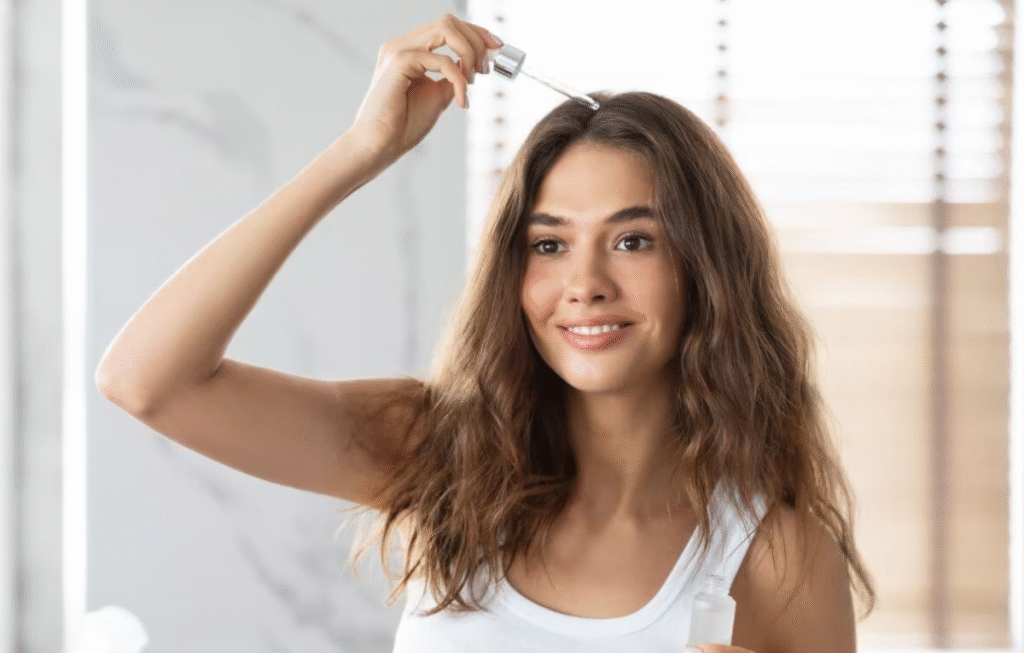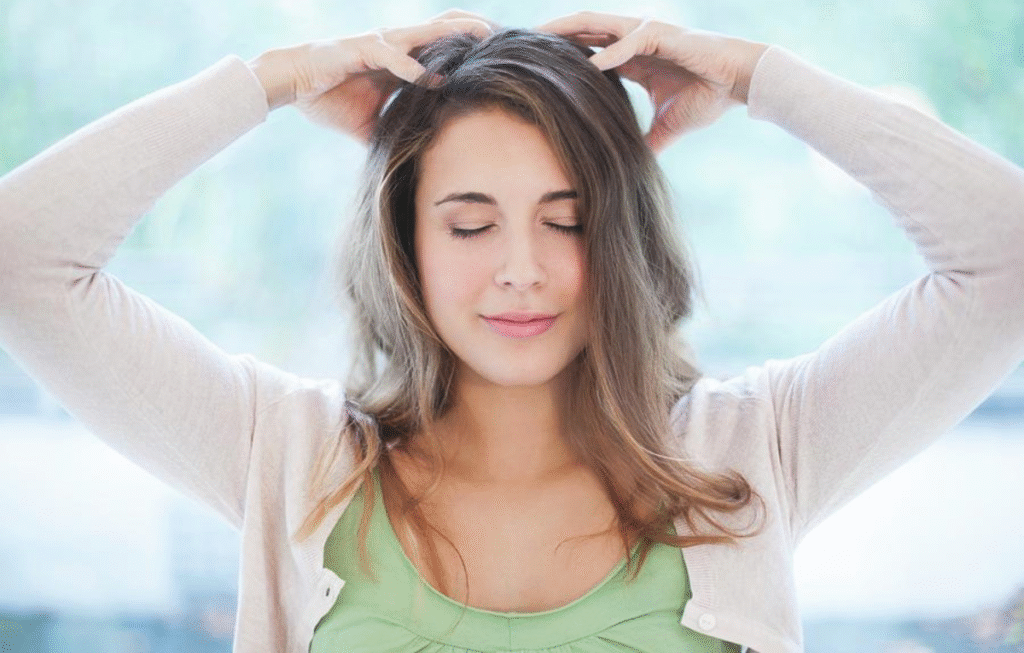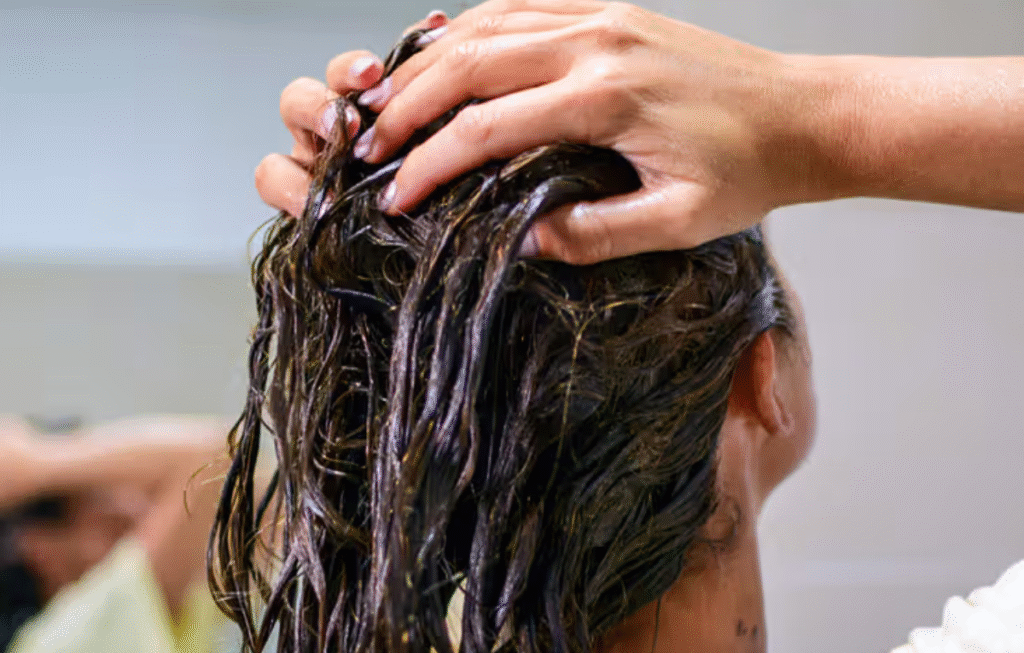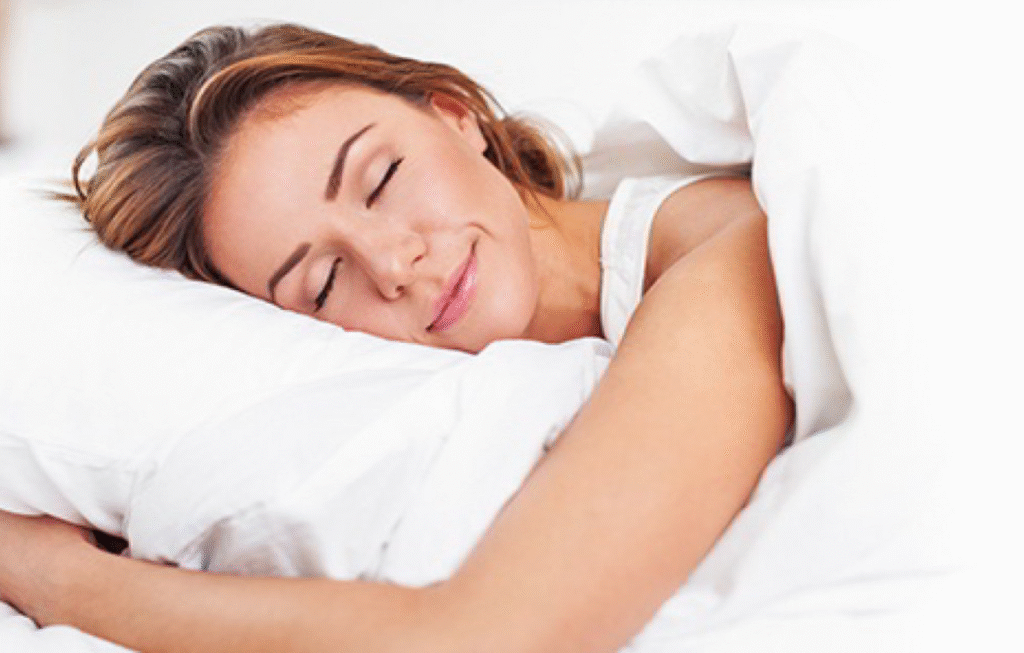Hair is an essential part of our identity. Fabulous, healthy, and shiny hair makes anyone feel good about themselves. However, when you begin to see hair your pillows, lumps of hair fall out while taking a shower, or half of your comb is filled with hair you can’t stop but worry.
Today, baldness is not just a problem that older people experience, but also people in their 20s, women, and even kids. All this is even worse now because of stress, poor eating habits, pollution, and using chemical based hair products.
The good thing is that if you are committed to caring for your hair, eating a balanced diet, and using a few natural remedies, thinning hair can be drastically reduced. And the best part is that you can do this without spending lots of money or putting any toxins on your scalp.
Here in this article, let us see in detail why hair falls, its natural growth cycle, and how to make your hair stronger and thicker with 5 easy and effective home remedies.
Understanding Hair Shedding and Growth
Most individuals believe that hair loss is always negative. However, the reality is that hair loss is a natural process. Each hair has a predetermined lifespan and sheds to pave the way for new hair.
The growth of hair occurs in three phases:
- Anagen Phase (Growth Phase): This stage is for 3–5 years. Here, hair grows all the time. Approximately 80–90% of hair on our head is here.
- Catagen Phase (Transition Phase): This is for around 2–3 weeks. Here, hair growth ceases and the root slowly becomes weaker.
- Telogen Phase (Resting Phase): This is for around 3 months. Here, old hair sheds and new hair comes.
Losing 50-100 hairs a day is very normal. But if you lose over 150 hairs a day, patches form on your scalp, or your hair starts to thin, it should not be neglected.
1. Nourish Your Hair from Within

Individuals tend to think about scalp oils, shampoos, and conditioners but fail to realize that hair gets nourished from the inside. If your diet is short of necessary vitamins and minerals, no hair product will work.
Key Nutrients for Healthy Hair:
- Protein – Hair consists of a protein known as keratin. Hence, protein deficiency can make hair weak and thin.
- Sources: Pulses, soybeans, eggs, milk, cheese, fish, and chicken.
- Iron – Inadequate iron in the blood does not allow oxygen and nutrients to reach the roots, causing hair loss.
- Sources: Spinach, beets, jaggery, lentils, and pumpkin seeds.
- Omega-3 fatty acids – These condition the scalp and give hair a shine.
- Sources: Flax seeds, walnuts, fish, and chia seeds.
- Biotin and Zinc – These assist in encouraging new hair growth and strengthening hair.
- Sources: Almonds, sweet potatoes, peanuts, eggs.
- Vitamin D and B12 – for scalp health.
- Food sources: Sunlight, milk, eggs, mushrooms.
Hydrating water is also necessary dehydration makes the scalp dry and leads to more dandruff and hair loss.
Example: If you have instant noodles or fast food each day and you’re complaining about hair loss, most likely it’s due to lack of shampooing, not what you’re eating.
2. Massage Your Scalp Regularly

Oil massage was always followed in Indian tradition to make hair stronger. This is not some grandmother’s tip but a scientifically validated technique.
How to Do It:
- Gently heat coconut, almond, castor, or rosemary oil.
- Massage gently in circular motions with your fingertips for 5–10 minutes.
- Apply the oil and leave it overnight and wash it off with a mild shampoo in the morning.
Follow this procedure at least 2–3 times a week.
Why It Works:
It increases the blood flow in the scalp. Increased oxygen and nutrients supply to the roots. Releases stress, preventing hair loss.
Example: In Japan and Korea, individuals do oil massage and scalp exercises once or twice a week. That is why individuals there have long and thick hair.
3. Use Gentle, Natural Hair Care Products

Most individuals believe that costly shampoos are superior, but the reality is that not all products suit all scalps.
Hair Care Tips:
Select a shampoo free from sulfate to prevent draining the scalp of its natural oils.
- Do not shampoo daily – 2–3 times a week is okay.
- Always condition to maintain moisturized hair.
- Minimize the use of dryers, straighteners, and curlers.
- Do not brush your hair excessively when it’s wet; this raises the risk of breakage.
- Don’t wear tight buns or ponytails.
Example: If you have dry hair and are using a chemically strong shampoo, it will worsen dryness and cause breakage. Use an herbal or sulfate-free shampoo instead.
4. Try Natural Hair Masks

Nature has endowed us with a number of ingredients that are a blessing for hair. Hair masks at home are not only cheap but also do not have side effects.
Here are 3 powerful natural masks you can try:
1. Aloe Vera & Coconut Oil Mask
- Blend 2 teaspoons of aloe vera gel and 1 teaspoon of coconut oil and apply on the scalp.
- Shampoo after 30 minutes.
Benefits: Cools the scalp, nourishes hair, and encourages hair growth.
2. Onion Juice Mask
- Squeeze the juice from an onion and mix it with 1 teaspoon of castor oil.
- Apply to the scalp and keep for 20 minutes, then wash.
Benefits: Sulfur from onions boosts collagen, which leads to new hair growth.
3. Fenugreek (Methi) Mask
- Soak 2 teaspoons of fenugreek seeds overnight and grind them.
- Apply paste on the scalp and keep for 30 minutes.
Benefits: Strengthens hair roots, curbs dandruff.
Example: In South India, a combination of coconut oil and aloe vera is used by people on a regular basis. This is the reason why individuals living there have longer and more robust hair.
5. Manage Stress and Sleep Well

Stress is one of the primary reasons for loss of hair. Ongoing stress leads to hormonal imbalances, which can cause hair growth to stop and result in early hair loss.
Ways to Reduce Stress Naturally:
- Do yoga, pranayama, or meditation for 15–20 minutes every day.
- Do mild exercise such as walking or cycling.
- Listen to your favorite music or indulge in a hobby.
- Ensure you have 7–8 hours of sound sleep every day.
Tip: A healthy brain leads to a healthy body and hair.
Additional Lifestyle Tips for Healthy Hair
- Do not smoke and drink alcohol.
- When going outside, wear a scarf or hat to avoid sun exposure and pollution.
- Get a haircut every 6–8 weeks to prevent split ends from forming.
- Avoid sharing hair combs and hairbrushes.
When to Seek Professional Help
Seek medical advice if: rapidly developing baldness increases significantly (over 150–200 hairs a day), there are bald patches on the scalp, itching or pain with no obvious reason, thinned hair, and so on. Consider visiting a dermatology or trichology clinic.
The dermatology doctor or trichologist can do a blood test for thyroid issues, hormonal issues, or nutritional deficiencies.
Final Thoughts
It is important to mention that hair loss can not entirely be stopped as this is part of the aging process and a normal process. However, it can be effectively managed and controlled with a correct diet, regular oil massaging, the use of natural hair masks, correct procedure with hair care, and overall a good stress-free life.
Hair care is a continual process. It is not a task that you do one day and it is done. It takes time, patience and consistency. Eventually, you will see your hair becoming stronger, thicker, shinier, and most important, your self confidence will return and continue to grow.
FAQs:-
Which oil is best for reducing hair fall naturally?
Coconut oil, castor oil, and rosemary oil are excellent choices as they nourish the scalp and strengthen hair follicles.
Can stress cause excessive hair shedding?
Absolutely. High stress levels disrupt the hair growth cycle, leading to increased shedding and slower regrowth.
How much hair fall is normal per day?
It’s normal to lose 50–100 strands daily as part of the natural hair cycle. Anything more than this may need attention.
Medical Disclaimer
The information provided on Health Tips India is intended for educational and informational purposes only. It should not be considered a substitute for professional medical advice, diagnosis, or treatment.
Always consult a qualified healthcare professional before making any health-related decisions or changes to your diet, exercise, or medical routine.
SamhithaHealth & Wellness Content Writer
a Health & Wellness Content Writer with over 6 years of experience creating research-based health articles. She specializes in nutrition, weight management, diabetes care, skin health, and healthy lifestyle practices. Here content is carefully written using trusted medical and scientific sources to ensure accuracy and clarity for readers.

